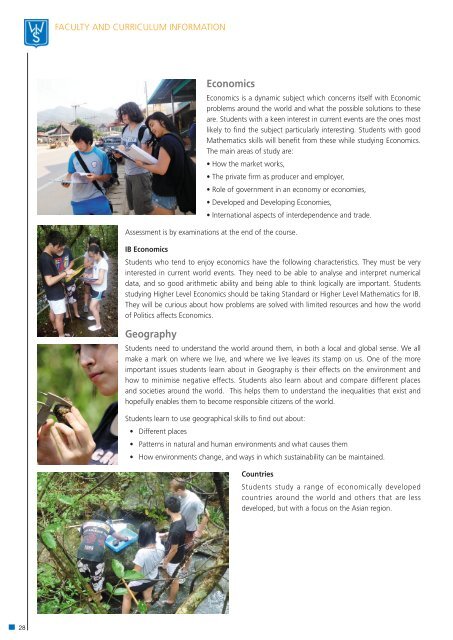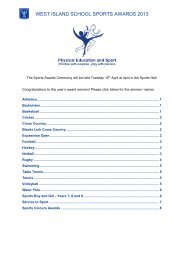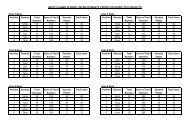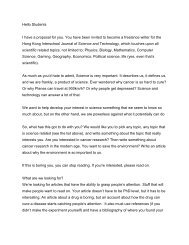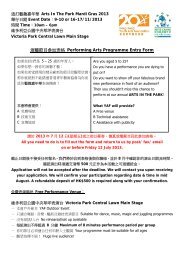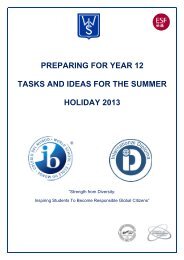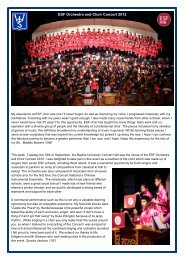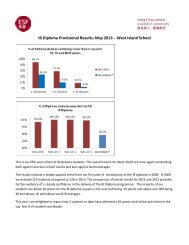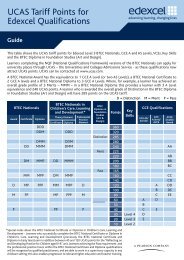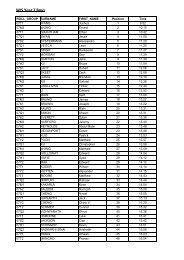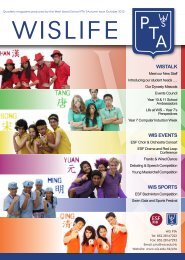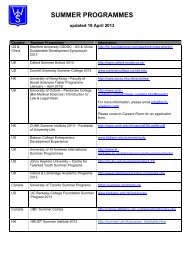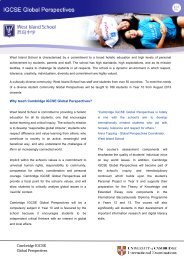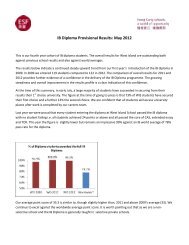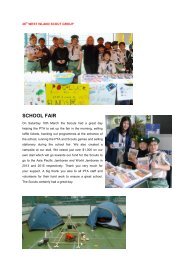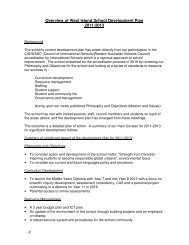WIS Prospectus 2012 - West Island School New Portal
WIS Prospectus 2012 - West Island School New Portal
WIS Prospectus 2012 - West Island School New Portal
You also want an ePaper? Increase the reach of your titles
YUMPU automatically turns print PDFs into web optimized ePapers that Google loves.
FACULTY AND CURRICULUM INFORMATION<br />
Economics<br />
Economics is a dynamic subject which concerns itself with Economic<br />
problems around the world and what the possible solutions to these<br />
are. Students with a keen interest in current events are the ones most<br />
likely to find the subject particularly interesting. Students with good<br />
Mathematics skills will benefit from these while studying Economics.<br />
The main areas of study are:<br />
• How the market works,<br />
• The private firm as producer and employer,<br />
• Role of government in an economy or economies,<br />
• Developed and Developing Economies,<br />
• International aspects of interdependence and trade.<br />
Assessment is by examinations at the end of the course.<br />
IB Economics<br />
Students who tend to enjoy economics have the following characteristics. They must be very<br />
interested in current world events. They need to be able to analyse and interpret numerical<br />
data, and so good arithmetic ability and being able to think logically are important. Students<br />
studying Higher Level Economics should be taking Standard or Higher Level Mathematics for IB.<br />
They will be curious about how problems are solved with limited resources and how the world<br />
of Politics affects Economics.<br />
Geography<br />
Students need to understand the world around them, in both a local and global sense. We all<br />
make a mark on where we live, and where we live leaves its stamp on us. One of the more<br />
important issues students learn about in Geography is their effects on the environment and<br />
how to minimise negative effects. Students also learn about and compare different places<br />
and societies around the world. This helps them to understand the inequalities that exist and<br />
hopefully enables them to become responsible citizens of the world.<br />
Students learn to use geographical skills to find out about:<br />
• Different places<br />
• Patterns in natural and human environments and what causes them<br />
• How environments change, and ways in which sustainability can be maintained.<br />
Countries<br />
Students study a range of economically developed<br />
countries around the world and others that are less<br />
developed, but with a focus on the Asian region.<br />
28


